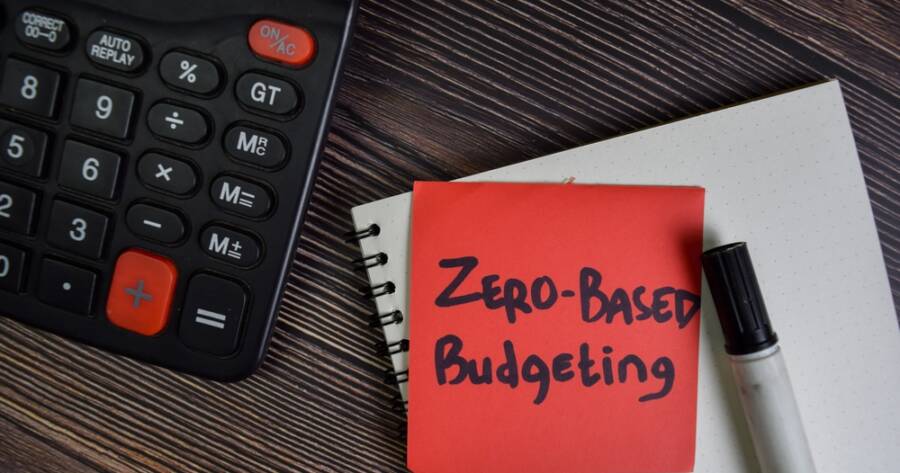When it comes to managing money, most people follow a simple rule: spend less than you earn. But if you’re looking for a budgeting method that helps you be more intentional with every single dollar, zero-based budgeting (ZBB) might be the strategy you’ve been missing.
Popularized by financial experts and embraced by families, freelancers, and even Fortune 500 companies, zero-based budgeting gives every dollar a purpose—before it even hits your bank account. It’s not about restricting your spending; it’s about being in control of where your money goes.
If you’re ready to get serious about your financial goals, here’s what zero-based budgeting is, how it works, and how to build your first zero-based budget.
What Is Zero-Based Budgeting?
Zero-based budgeting is a method where your income minus your expenses equals zero each month. That doesn’t mean you spend all your money—it means you assign every dollar to a specific category: savings, bills, debt repayment, groceries, entertainment, or anything else.
In other words, every dollar has a job. If you make $3,000 in a month, you’ll budget that entire $3,000 so that by the end of the month, you’ve told every dollar where to go—even if it’s “going” into savings or an emergency fund.
Unlike traditional budgeting, which often just tracks spending or relies on estimated expenses, zero-based budgeting requires you to plan out each month’s income and expenses from scratch—hence the term “zero-based.”
Why Zero-Based Budgeting Works
This budgeting method is especially useful for anyone who:
-
Lives paycheck to paycheck
-
Struggles to save consistently
-
Feels like their money “disappears”
-
Has irregular income (freelancers, gig workers, commission-based jobs)
-
Wants to be more mindful and goal-oriented with their money
Here’s why it’s effective:
1. Increased awareness
ZBB forces you to think about how every dollar is being spent. It shines a light on wasteful spending and helps prioritize what matters most.
2. Better control over irregular income
For people with fluctuating paychecks, ZBB adapts to your income each month, allowing you to adjust spending categories accordingly.
3. Goal-oriented focus
Because you budget for savings, debt payoff, and financial goals just like you would rent or groceries, you make progress faster—on purpose.
4. Eliminates “extra” money temptation
Got a tax refund? A bonus at work? With zero-based budgeting, unexpected money doesn’t sit idle—it gets assigned a job right away, reducing impulse spending.
How to Set Up a Zero-Based Budget
Step 1: Calculate your total monthly income
Include all reliable sources: paychecks, side hustle income, alimony, child support, or freelance earnings. If your income varies, use the lowest amount you expect to receive for safety.
Step 2: List all expenses for the month
Start with essentials:
-
Rent/mortgage
-
Utilities
-
Groceries
-
Transportation
-
Insurance
-
Debt payments
Then add non-essentials and irregulars:
-
Subscriptions
-
Dining out
-
Gifts
-
Medical expenses
-
Savings and investments
Step 3: Assign every dollar a category
Keep subtracting each expense from your total income until you hit zero. If you have money left over, assign it to savings, debt, or a financial goal. If you’re over budget, reduce or remove spending in lower-priority areas.
Step 4: Track spending and adjust as needed
Use a budgeting app like You Need a Budget (YNAB), EveryDollar, or a simple spreadsheet to monitor your progress. Life happens, so be ready to shift categories if your needs change mid-month.
Common Mistakes to Avoid
-
Forgetting irregular expenses: Don’t get blindsided by annual or semi-annual bills. Include categories for holidays, birthdays, car maintenance, or back-to-school expenses.
-
Not budgeting for fun: A zero-based budget isn’t supposed to be miserable. Build in room for fun money or treats so the plan is sustainable.
-
Letting the plan go stale: Review and update your budget every month. Your income, goals, and expenses can shift—and your budget should too.
Is Zero-Based Budgeting Right for You?
Zero-based budgeting takes a little more time and planning up front, but the payoff is huge: less stress, more control, and faster progress toward your goals. Whether you’re trying to pay off debt, build an emergency fund, or simply be more intentional with your spending, this method can help you take charge—down to the last dollar.
Even if you don’t stick to it forever, trying ZBB for a few months can give you valuable insights into your financial habits and help you build a stronger foundation for the future.
So if you’re tired of wondering where your money goes each month, it’s time to start telling it what to do. With zero-based budgeting, you’re the one in charge—and every dollar counts.

